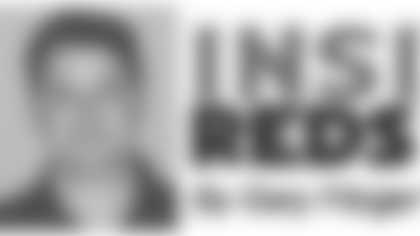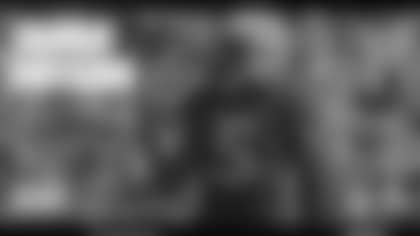London Fletcher is already acknowledged as the "quarterback" of the Redskins' defense. Now he'll be even more of a leader on the field.
On April 2, the NFL adopted a rule that allows a defensive player to communicate with coaches via a helmet microphone before lining up at scrimmage.
It's similar to the helmet communication device that offensive coaches have long had with quarterbacks.
Fletcher is expected to be the designated player on the Redskins' defense to communicate with defensive coordinator Greg Blache.
One backup player--possibly linebackers H.B. Blades or Khary Campbell--will also be fitted for helmet communication, but they cannot be on the field the same time as Fletcher.
Fletcher has already thought about how the helmet communication will change his role--and the game.
Previously, defensive coaches and players communicated primarily by hand signals.
"Obviously, it'll be something I have to get used to," Fletcher said. "I'm not sure how much time they will allow the defensive players to receive communication from the coaches. At what point will they turn off [communication]? Will they give us an alert?
"At the end of the day, you just want to make the call, get lined up and play football."
While Fletcher still has questions, he believes the new communication system will help defenses once the kinks are ironed out.
It will help "level the playing field" so that players on both sides of the ball will be able to receive direction from coaches on the sidelines, Fletcher said.
Quarterbacks have long been able to stay a step ahead of the defense due to helmet communication.
"If you think about it, the offensive coaches get their call in and get a chance to communicate [with the quarterback] for up to 15 seconds," Fletcher said. "They can tell the quarterback, 'They're Cover 2.' Or 'They're Cover 1.' Or 'Stay alert to the blitz.' It's a big advantage."
For the defense, there's one potential problem.
Fans at home stadiums try to disrupt opposing team's offenses with crowd noise.
But that's when Fletcher will be on the field. He hopes fans aren't so loud that the noise interferes with helmet communication.
"I guess I'll find out how opposing quarterbacks feel when they come into FedExField and have to deal with the crowd noise and try to communicate," Fletcher said, chuckling.
"Hopefully, they won't be yelling so loud that I won't be able to hear the signals."






